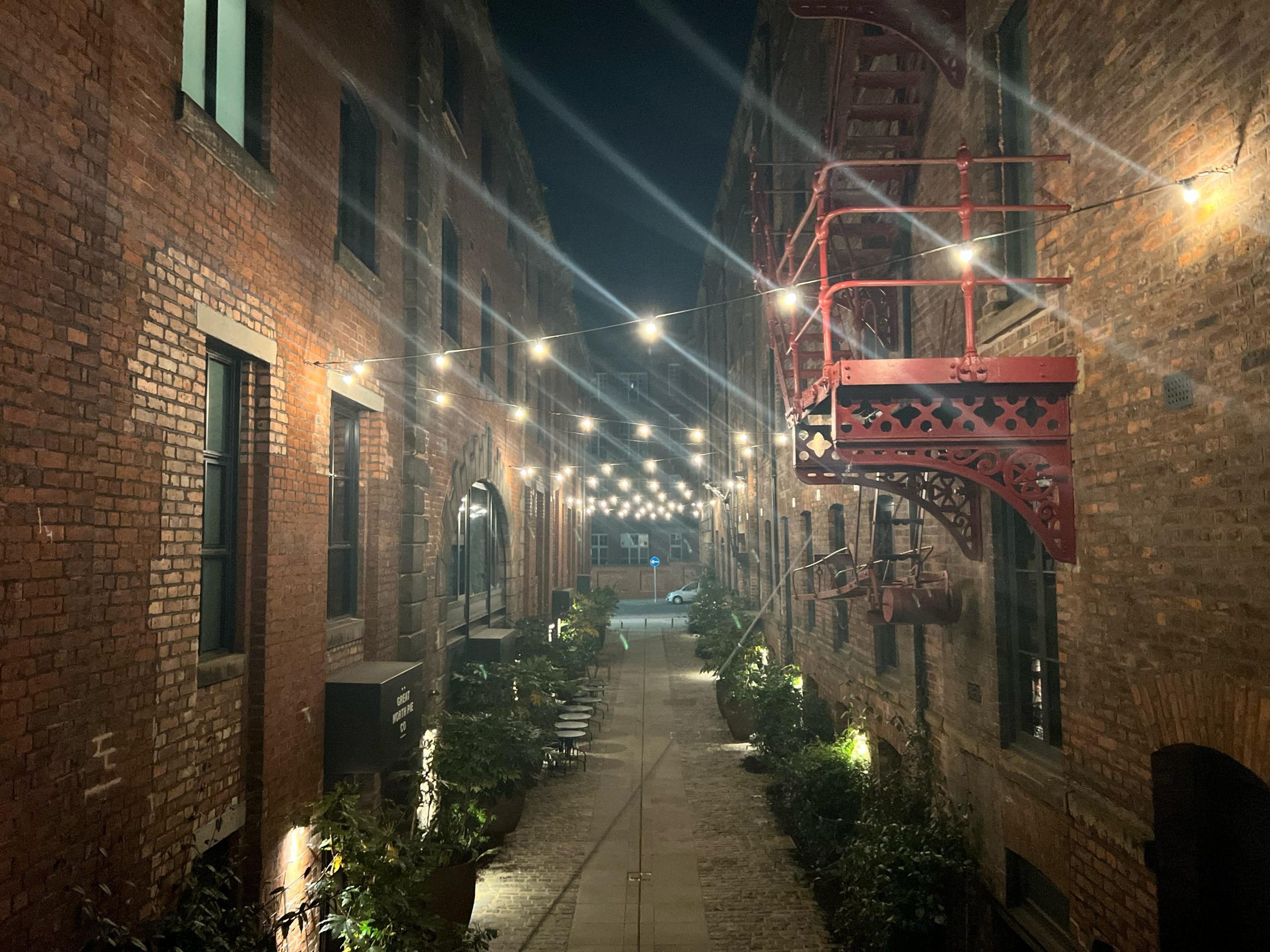
Manchester’s former nightlife boss has warned that the sector ‘will not thrive’ as business rate discounts face the axe.
The government’s 75% discount on business rates for late-night hospitality will come to an end tomorrow (31st March 2025). This coincides with employers’ national insurance contributions and the national minimum wage rising in April.
The Parklife and Warehouse Project co-founder predicted in 2020 the local industry would take five years to recover from the Covid-19 lockdowns. But he now warns that things are far graver than expected.
Sacha Lord, the Night Time Economy Advisor to the Greater Manchester Combined Authority, has called for either reversal of policy on business rates or more financial support to be provided by the government. The government has said that the current relief is “unworkable” but promised more support in the form of lower taxes next year.
“We’re now five years on from the start of the Covid pandemic and yet the hospitality sector is still in survival mode, rather than recovery” Lord told Quays News. “For many business owners, the situation is worse than ever and I’m gutted that the hopes we had for a recovery have not yet come to fruition.
“Business owners I speak to are exhausted. They’re fighting against rising energy costs, inflation, low consumer confidence and tightening disposable incomes, and despite the change in Government, there’s still that lack of awareness over just how important this sector is to wider UK economic growth.
“We know that 99 percent of operators have been forced to raise prices to cope with the added financial pressures, yet this is a vicious cycle which only pushes customers away. At the same time, 97 per cent have frozen investment or stalled growth due to ongoing uncertainty around the upcoming tax changes in April, and businesses are closing at a rapid rate.
“Without a clear long-term plan, we can’t expect this sector to thrive. The upcoming economic picture from the Office for Budget Responsibility, coinciding with the Chancellor’s Spring Statement next week, is not expected to be positive and without a u-turn on business rates or further financial support from the Chancellor to give operators a more stable footing, we risk losing even more businesses that simply can’t keep up with rising costs and dwindling margins.
“If we want customers to spend, if we want businesses to grow, and if we want to see hospitality thrive again, we need stability and unfortunately right now, that still feels a long way off.”
Manager of Bolton’s Ye Old Man and Scythe, Charlie Butler, has said he has come to expect the “bare minimum” from local and national authorities, as the bar has been set very low.
He said that being in Bolton town centre meant it was easy to gauge what the general footfall around town must be like.
“We’re seeing less customers coming from out of town and locals are looking for the cheapest pints they can get,” he said. “I think people think they’re still living 2015. We can’t serve pints for £2.50 any more.
He added that further lowering beer tax would increase footfall as they would be able to bring prices down.
He said it would it would be silly to lose the over 800 year old community hub “because of something like beer tax.”
“We have already had to rise prices by about 10p per unit, to account for the rises [in business rates, national insurance contributions and minimum wage],” he added.
These concerns were echoed when the BBC spoke to Mark Wrigley the owner of Atlas Bar in Manchester City Centre. He estimated that the budget measures, alongside the rising business rates and energy bills, will add at least £55,000 to his costs.
A spokesperson for the Treasury said the Government was determined to “kickstart economic growth”, by permanently cutting business rates, with draft legislation intended to take affect in 2026.
Quays News reached out to JD Wetherspoons spokesperson, Eddie Gershon, who explained how Weatherspoons has bounced back from the pandemic.
He said: “Fortunately the pubs are now trading as normal and Wetherspoon pubs in Manchester are busy.
“A number of pubs never recovered from the lockdown, but that was not the case with Wetherspoon.
“As soon as the lockdown was over, the company reopened all of its pubs and this was welcomed by staff and customers alike.
“Wetherspoon continues to invest in existing pubs as well as opening new pubs.
“People love pubs – it is as simple as that – and the lockdown showed just how much people missed socialising in a pub.”
Before the pandemic, employment in the night life industry had grown 45% faster the the remaining Greater Manchester economy since 2001, with 33% of the workforce employed in active night time roles.
Sacha Lord said at the time: “I wholeheartedly believe that the sector plays a critical part of the growth and leading status of our city-region however its with a heavy heart that I estimate it will take at least five years to recover to pre-pandemic levels.”
